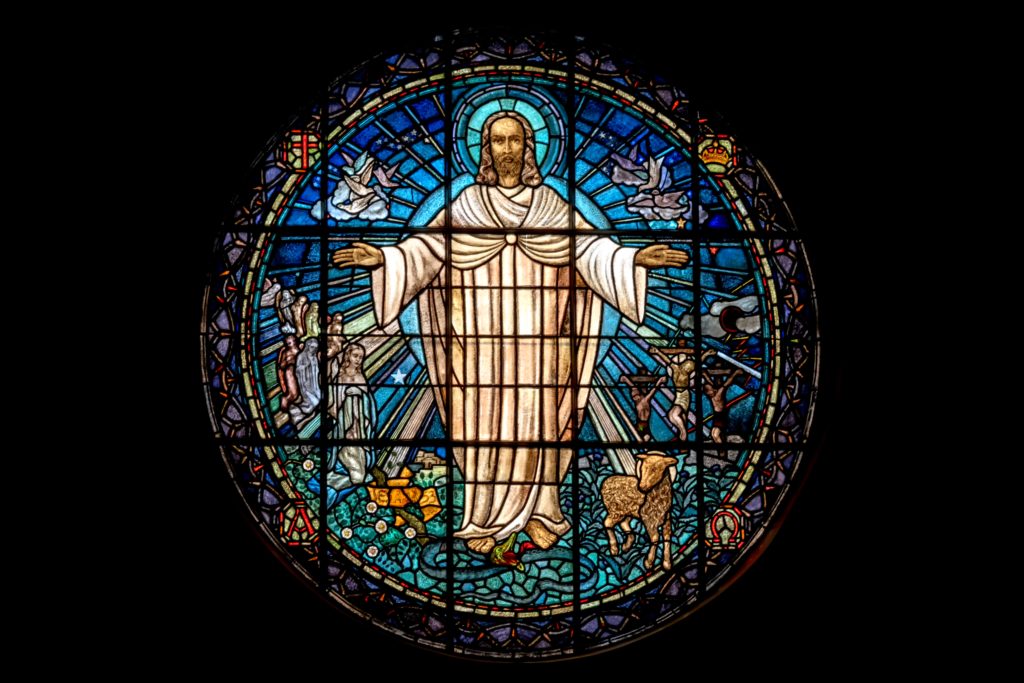
God has made us in his image (Gen 1.27).
Because of that, we’re compelled to know and worship him; we’re driven by our very nature to seek him.
Over the centuries, humans have sought God in lots of places—
- In natural revelation, the works of God’s hands. He does reveal himself there, but we know the world is broken by sin (Rom 8.22) and is not designed to be worshiped (Ro 1.25). Pantheism and animism don’t bring us to God.
- In good works, the salving of our conscience. Our conscience is indeed a gift of God, and when properly informed it’s a valuable tool, but like nature, our conscience is broken too, and it can’t reveal God to us in any way we can trust. Further, our good works cannot be compared to God’s complete perfection (Is 64.6).
- In ourselves, which is where the predominant worldview today seeks meaning. Not surprisingly, since creatures are unworthy of worship, current secular philosophy denies that we are creatures—and in so doing dooms itself by beginning with a false premise.
Where, then, do we find God? As I’ve noted recently, we find him perfectly revealed in Christ (Heb 1.1-2). Norman Geisler notes that in Colossians 1, as in no other passage, are concentrated “many characteristics of Christ and His deity” (Bible Knowledge Commentary). It’s certainly worth our time to think through this rich passage.
Paul describes our ongoing relationship with God as beginning in knowledge (Col 1.9) that expresses itself in a worthy walk (Col 1.10), for which we are strengthened by the Spirit to endure the difficulties that come from walking worthily (Col 1.11). This climaxes in a heart of gratitude for what God has done in Christ (Col 1.12): he has qualified us (Col 1.12) and transferred us to the Son’s kingdom (Col 1.13). As Paul meditates on this work, his focus shines like a laser beam on Christ, whose work has brought our salvation. How pre-eminent is this One Who has taken interest in our helplessness!
Christ manifests himself as pre-eminent in several ways—
- In the cross (Col 1.14). He becomes man because no other man can do what needs to be done for our rescue. He redeems us, liberating us from our abusive master (Col 1.14a) and the power of his grip on us, and he forgives us, liberating us from the guilt of our sin (Col 1.14b).
- In creation (Col 1.15-17). He is “the firstborn over all creation” (Col 1.15)—I’ve written on that before—because he is the powerful creator (Col 1.16). And he faithfully upholds and directs all that he has created (Col 1.17)—that’s what we call providence. He made it all and runs it all. That’s pre-eminence.
- In the church (Col. 1.18-23). He is the head of the body, the church (Col 1.18a) and the source of its life (Col 1.18b). In the end, he is the one who reconciles to God all who are in that body (Col 1.19-22a), upholding us through life’s journey until we dwell in his presence (Col 1.22b-23).
This one God-Man has done it all. He has created and directs the entire cosmos in which we live, move, and have our being; he has solved the infinite problem of our sin; and he enables and empowers us through our life of service to his purpose, finally reconciling us completely and eternally to the God from which we came.
We ought to live for him.
Who is He on yonder tree
Dies in grief and agony?
Who is He that from the grave
Comes to heal and help and save?
Who is He that from His throne
Rules through all the world alone?
’Tis the Lord! O wondrous story!
’Tis the Lord! the King of Glory!
At His feet we humbly fall;
Crown Him! Crown Him Lord of all!
– Benjamin Russell Hanby
Photo by Paul Zoetemeijer on Unsplash

Michael R. White says
Superb treatise. Bad link on Col 1:14b, I think.
Dan Olinger says
Thanks, Mike. Actually, the link is correct. Redemption mentioned in the verse speaks of liberation.